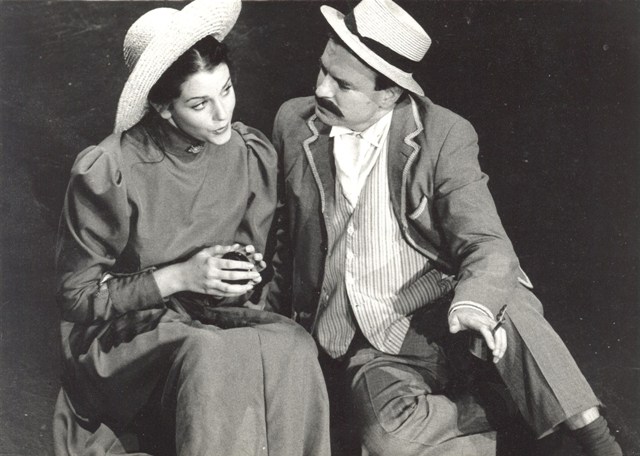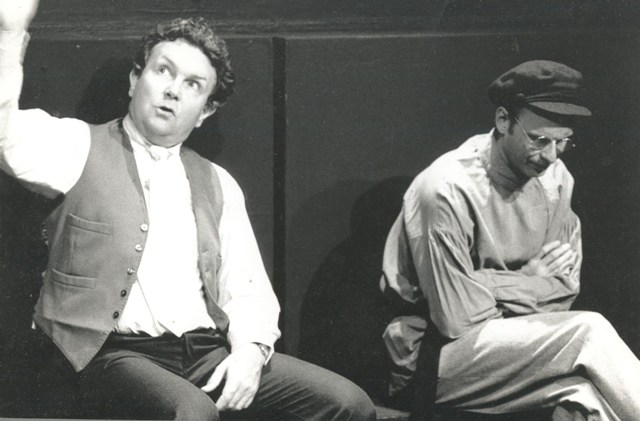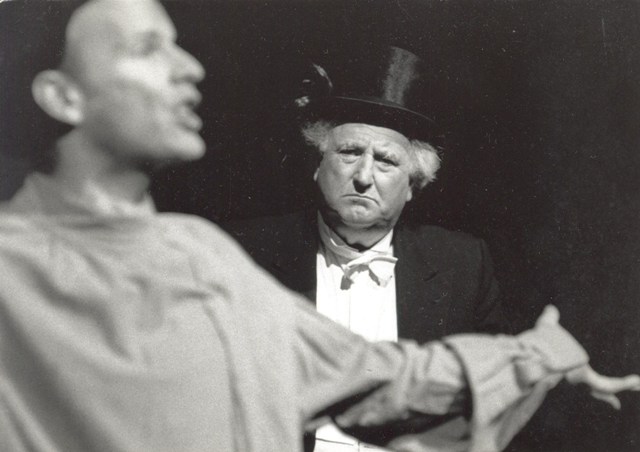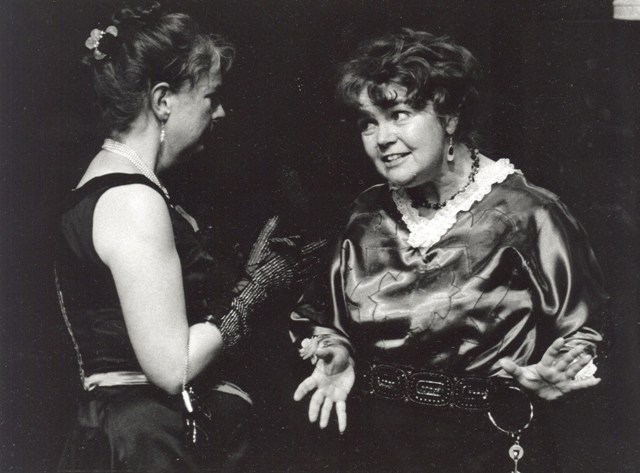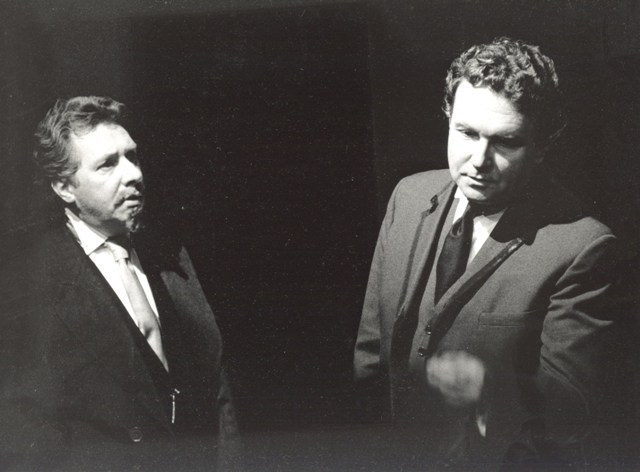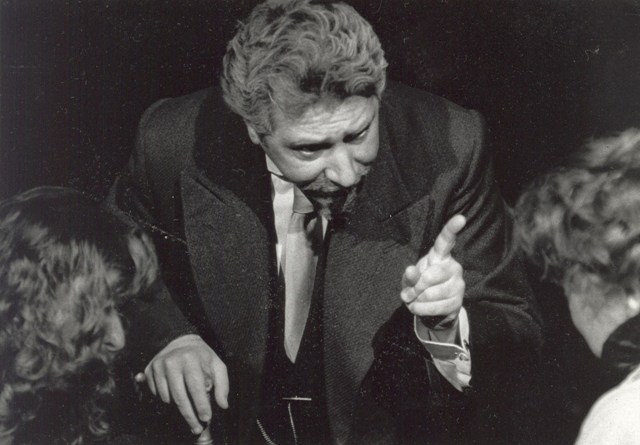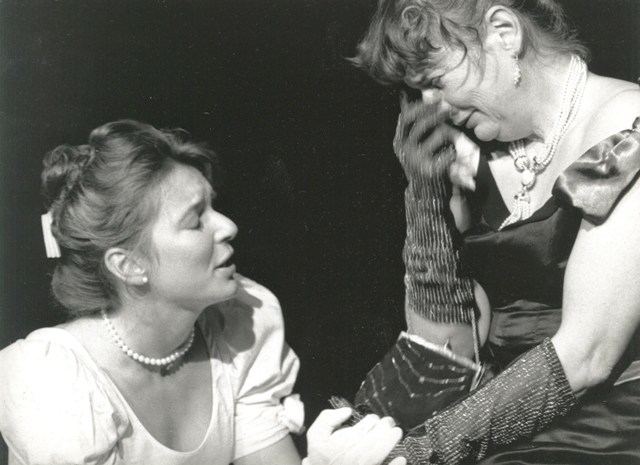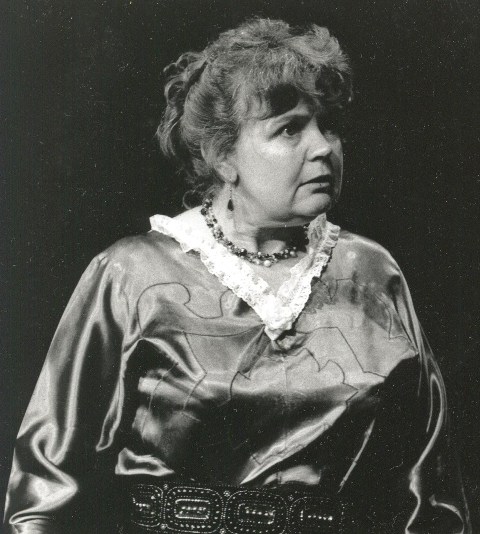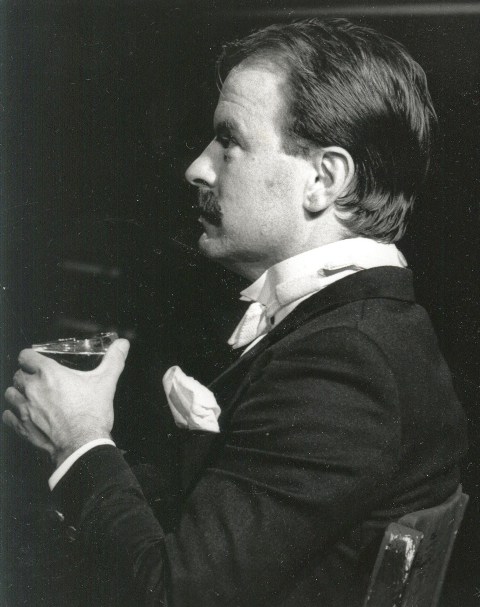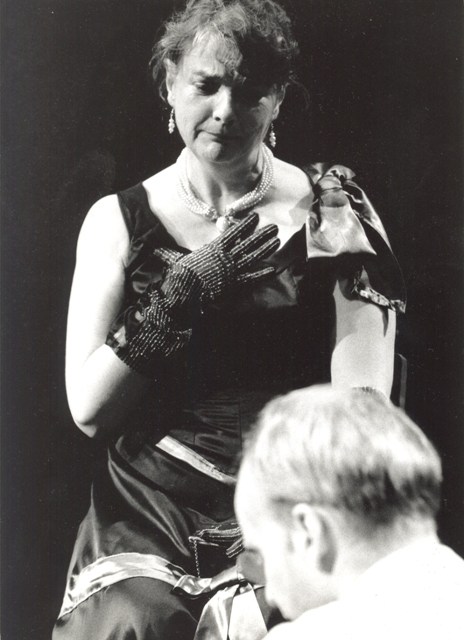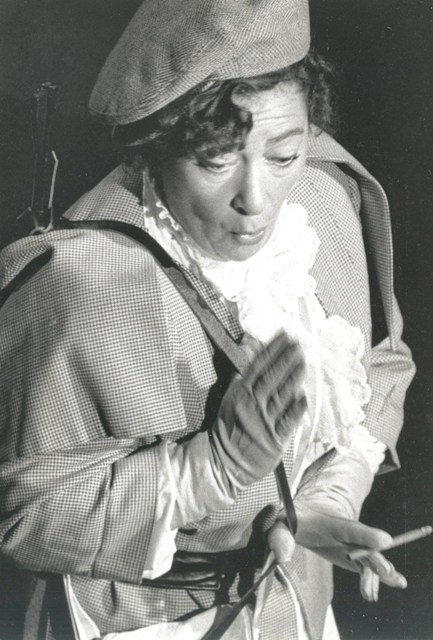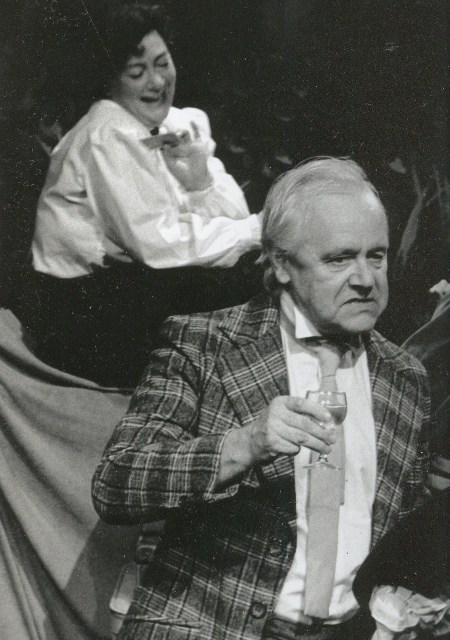The Bench Production
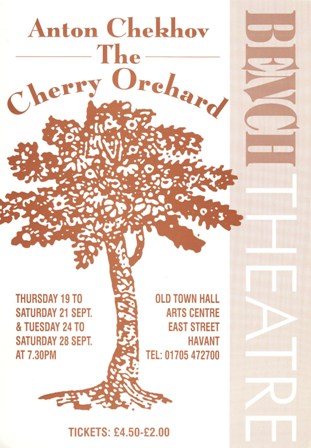
This play was staged at Havant Arts Centre, East Street Havant - Bench Theatre's home since 1977. It was the second time Bench Theatre had staged this particular play, the first time being in 1975 at the old Bench Theatre in West Street also under the direction of John Scadding.
Characters
| Dunyasha, the chambermaid | Katy Smith |
| Lophakin (Yermolai), a businessman | David Penrose |
| Yepikhodov, the estate clerk | John Blackmore |
| Firs, the old footman | Derk Cusdin |
| Anya, Liuba's daughter | Isabella Favarin |
| Liuba Ranyevskaya, a landowner | Nicola Scadding |
| Charlotta Ivanovna, the governess | Helena Whalley |
| Varya, Liuba's adopted ward | Ingrid Corrigan |
| Gaev (Lenya), Liuba's brother | John O'Hanlon |
| Simeon-Pischick, a landowner | Stuart Hartley |
| Yasha, the young footman | Simon Walton |
| Trofimov (Petya), a student | Neil Pugmire |
| A Passer-by | Barry Brennan |
Crew
| Director | John Scadding |
| Stage Managers | Gabrielle Penfold, Stuart Monk |
| Lighting Design | John Scadding |
| Lighting and Sound Operators | Andrew Caple, Tim Taylor |
| Wardrobe | Gemma Boyd, Helena Whalley |
| Additional Costumes | Sheila Spackman |
| Music and sound effects | John O'Hanlon |
| Leaflet Design | Pete Woodward |
| Designer and Decorator | John Scadding |
| Publicity | Kathy O'Hanlon and John O'Hanlon |
| Front of House | Kathy O'Hanlon |
Director's Notes
Chekhov started his writing career with comic pieces and he ended his career writing comedy again. In between, he wrote some of the most heart-breaking stories and plays ever written: read three in a row and prepare to kill yourself.
Now at the end of his career he was determined to go out on a laugh. So he took the corniest story-line available to a Ruskie at the time - the selling of the old estate (yawn, yawn). He amassed a dozen reach-me-down characters like the deaf old butler, the noisy new capitalist, the amorous servants, etc, etc, shook them all together like a fizzy mixture and called it 'The Cherry Orchard'. Nothing at all was new in the play - except the way he told it.
And there lies the problem.
Right from the start the play was misunderstood. Chekhov was furious with the first production. "Why have they turned all my characters into cry-babies?" he asked. It helped to kill him. Stanislavski, the greatest Russian director finally accepted that the play was a comedy and found out how to do it. It took him four years.
On the edge of existence, Chekhov capers and dances. Before the light goes out, he forgives and sings. He smiles, he rejoices, he goes out giggling. Alright, there is sadness, but they're such a daft lot and we're such a daft lot all we human beings ("nincompoops", "job-lots" and "silly-billies") that the best thing to do it to laugh at all of it.
But he laughs lovingly, he laughs without bitterness, he laughs too at himself - and in a strange prosey poetry.
Highfalutin? Not at all. Did you see the last episode of Blackadder Goes Forth, when they go over the top? Well that's what I'm talking about.
I hope you enjoy it.
John Scadding
Reviews
The NewsMike Allen
Playing it for laughs
Director John Scadding declared his intention of playing Chekhov for laughs and at breakneck speed in his Bench Theatre production. In fact neither necks nor hearts are broken. The pace is good but the balance has been shifted too far towards the comedy, which is mostly on the fringe of the central conflict.
This is between the old gentry, embodied by Ranyevskaya, refusing to face the facts of a changing world, and the new generation represented by Lophakin, the former serf who buys and fells her beloved cherry orchard.
Nicola Scadding is a solid Ranyevskaya, perhaps too solid to convey her full weakness. David Penrose brings more light and shade to Lophakin, moving between respect and frustration, good humour and triumphalism. High entertainment comes from Helena Whalley as a batty governess, and from Neil Pugmire, a jumble of certainties and uncertainties as eternal student Trofimov. Nor are they alone in making expressive use of the eyes - giving even a throwaway glance a world of meaning.
The News, 20th September 1996
